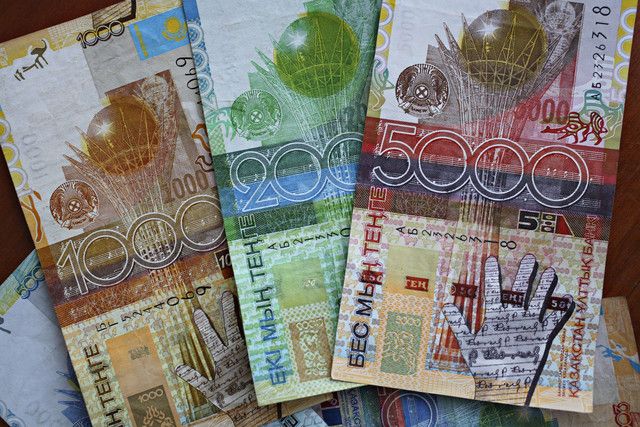 Photo: businessweek.comFinancial experts have shared their opinions about the possibility of the second wave of devaluation of the Tenge, Kazakhstan’s national currency, Tengrinews reports.
Photo: businessweek.comFinancial experts have shared their opinions about the possibility of the second wave of devaluation of the Tenge, Kazakhstan’s national currency, Tengrinews reports.
A devaluation of the Tenge occured in February this year when Kazakhstan’s Central Bank decided to stop supporting the tenge exchange rate of 150 tenge per 1 dollar. The new exchange rate was set to 185 tenge per 1 dollar. The nearly 20% devaluation came as an unannounced shock for the country's population.
Since Kazakhstan is a small economy with a GDP of around $200 billion and a population of 15 million, it is greatly influenced by the neighbouring Russia that has a GDP of over $2 trillion and a population of nearly 144 million. Russia is now subject to a whole range of international sanctions and is finding it hard to harness the inflation. Russia is Kazakhstan's main trade partner and its problems influence it. This pushes the inflation rate in Kazakhstan upwards, exerts pressure of the Kazakh currency and creates prerequisites for a new devaluation in Kazakhstan.
According to Anna Bodrova, a senior analyst in Alpari, a Kazakhstani branch of Russian leading investment company, the raging devaluation talk is a speculation only and have no fundamental ground behind them. "There have been a lot of rumors about the possibility of a new depreciation of the tenge in the past several months, but they are groundless," the analyst said.
Anna Bodrova added that in H1 2014 Kazakh central bank's gross gold and forex reserves grew 7.1% reaching $26 billion, and aggregate international reserves grew 7.9 % reaching $103.1 billion.
"If Kazakhstan's central bank was expecting a negative scenario for the tenge, the gold and forex reserves would have been growing much faster. In May to June 2014 the growth of the reserves was very small, since the National Bank stopped buying foreign currencies allowing the tenge become a little bit cheaper. The exchange rate corridor of 182-188 tenge per 1 USD set by the regulator (back in February) holds good," the analyst said.
Aivar Bakenov, Director of the Analytics Department at Kazakhstani Asyl-Invest brokerage firm, also believes that devaluation of the tenge is unlikely. "The forex reserves are decreasing. This is happening mainly because the bank is supporting the tenge exchange rate. Devaluation expectation often spur currency speculations that the National Bank has to counter, " he said.
Amid the existing lack of trust to the national currency, people easily fall for panic driven by spread spread by those trying to speculate on the tenge exchange rate, Baikenov said. Since people fear another devaluation the capitals tend to flea from the tenge into foreign currencies.
However, he acknowledged that the situation at the external markets, Kazakhstan macroeconomic positions and Russian rouble exchange rate were exerting pressure on the exchange rate of the Kazakh tenge. Therefore, he said it was quite likely that the tenge per dollar exchange rate would move towards its ceiling range of 188 per 1 USD.
In early June Kazakhstan’s central bank Governor Kairat Kelimbetov also refuted the devaluation rumours. "There are no expectations of any further devaluation (…) all possible speculations are mere rumors. For the 5 years – from 2009 to 2014 – rumors have emerged on average 13 times a year, triggered by speculators (…) there is no ground for the tenge depreciation; oil prices are high; Russia’s rouble is on the rise. Even if the latter faces a certain devaluation, it is no frightening factor for Kazakhstan. I believe we have a sufficient margin of safety," he said.
Source: Tengrinews.kz
 В Атырау -10
В Атырау -10